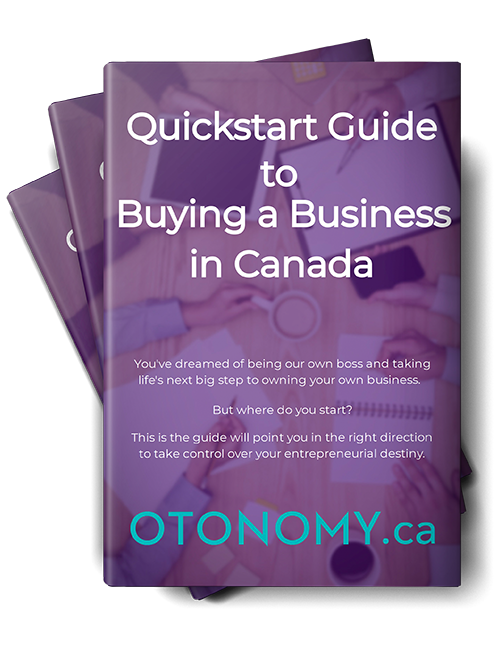Two of the first questions for many who are considering buying an existing business are: “why would someone sell a business that is profitable?” and “Is this business on the verge of failure?” There are multiple reasons why an existing owner chooses to exit a business. They may be retiring, looking for a new challenge or have struggled to make the business profitable. There are owners who may simply be burnt out, or on the opposite side of the spectrum, are serial entrepreneurs who are ready to move onto their next enterprise. Asking the right questions is a critical first step in due diligence. You will learn a great deal from the existing owner, and may find a business that is priced below market due to stagnation or other factors. For the right buyer this could be an amazing opportunity to turn a business around and into a much more profitable enterprise.
If you are going to buy an existing business that is struggling, and as a result is cheap to buy, you need to have a plan to correct its current trajectory. If you don’t plan and execute well, chances are that you will also fail. It is also good to remember that not all businesses can be successful. We have all passed that storefront in our neighbourhood that appears to have a revolving door of owners and businesses, yet whose offerings seem to change little.
Having a deep discussion with the current owners, and exploring why they’ve decided to leave their business, is an important step that every potential buyer needs to perform.
Common Reasons for Selling
Retirement – One of the most common reasons that exciting owners sell. As our population continues to age, a significant amount of small business coming on the market. According to the BDC, 41% of existing entrepreneurs are expected to exit their business within the next 5 years, and 60% of all small and medium-sized business owners are older than 50. As a result today is absolutely a great time to look for a business to buy.
Burn out – Running a small business requires hard work and non-stop dedication. Regardless of how successful the business may be, boredom or fatigue can set in. If an owner no longer feels challenged, or if they can no longer take the hours and stress, they may choose to move onto other opportunities.
Lack of strategic vision – The ‘big ideas’ once held by the small business owner can be replaced with a myopic focus on operations and ‘firefighting’. This can lead to poor decisions and a failure to adapt when market conditions change. Businesses for sale that are facing this challenge can be a lucrative opportunity for potential buyers. A new owner may have the ability to implement better processes and bring a fresh vision to the business that allows for true revitalization.
Aggressive competition – Markets can evolve rapidly. If a business owner is unable to introduce innovation, they can be quickly fall behind. However, competition should not be viewed as a negative unless you are unable to compete. Strong competition is an excellent indicator for market demand, and in the right circumstances can spur business owners to make exciting and innovative changes to meet the new world.
Lack of income/sales – There is a big difference between a failing company and a poorly managed company that is failing. Due diligence allows a buyer to determine whether the business they are considering can be salvaged by a new owner. Opportunity is tied directly to risk. The higher the risk, the (theoretically) lower the cost of business acquisition and greater the opportunity. As a buyer, you need to be ready to walk away from an unsalvageable business regardless of how attractive the price.
Risk and Asking Price
Low risk and high price – Companies that are profitable, with growing revenue and strong financial projections, will typically command the highest price and rightfully so. These small businesses are seeing strong growth and are the target for a new owner looking to expand. These businesses are typically sold by serial entrepreneurs looking to sell to maximize their profit, or by an existing owner who is preparing for retirement. As they have been working to grow the business, the existing owner will likely be open to a longer transition period, as they will want the new owner to be as successful as themselves.
Medium risk and medium price – The business that has hit a plateau. Revenue is steady and the current owners may have lost steam, are ready to do something different, or retire. These business are sometimes called ‘buying a career’, and are the target for buyers who want a steady income, yet aren’t looking for a large growth opportunity or something that needs to be fixed. That is not to say that there will not be work needed to keep the business at this level, yet you are investing more into your security and future than something which is going to be a huge time investment.
High risk and low price – The business may be on the decline, has struggled to take a share of the market it operates in, or possibly the existing owners are not a fit. Businesses for sale in this category are higher risk, yet present the greatest opportunity for a new owner who can make them work. A business that appears to be financially under-performing is not necessarily non-viable. A new owner with a new perspective, strategic plan and way of doing business, could be the one to turn a business around.
Conclusion
Before agreeing to purchase a business, completing your due diligence is essential. Understanding why the existing owner wants to exit, as well as having a clear and complete understanding of the business, can be the the difference between success and failure. If you are looking to purchase a business that is under-performing, knowing what you will bring to the business to help correct its course is a must. What are your key differentiator(s) that the current owner doesn’t have? Finally, if your research tells you that no amount of work will save the business, keep looking for one that you are comfortable with. Only you know where your comfort sweet spot is between risk and price.




